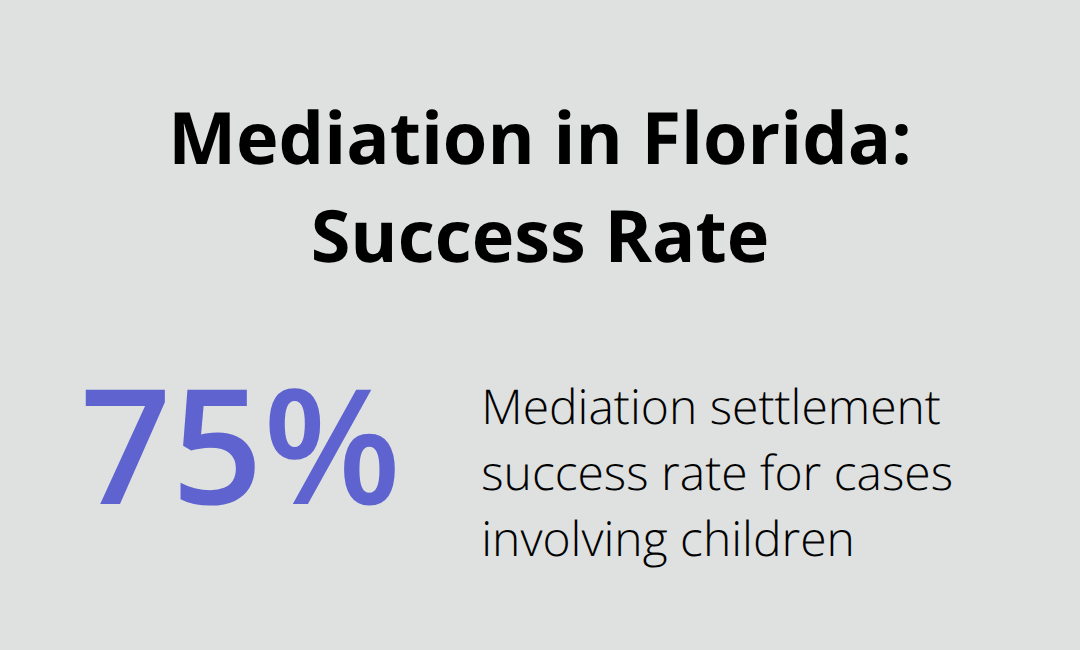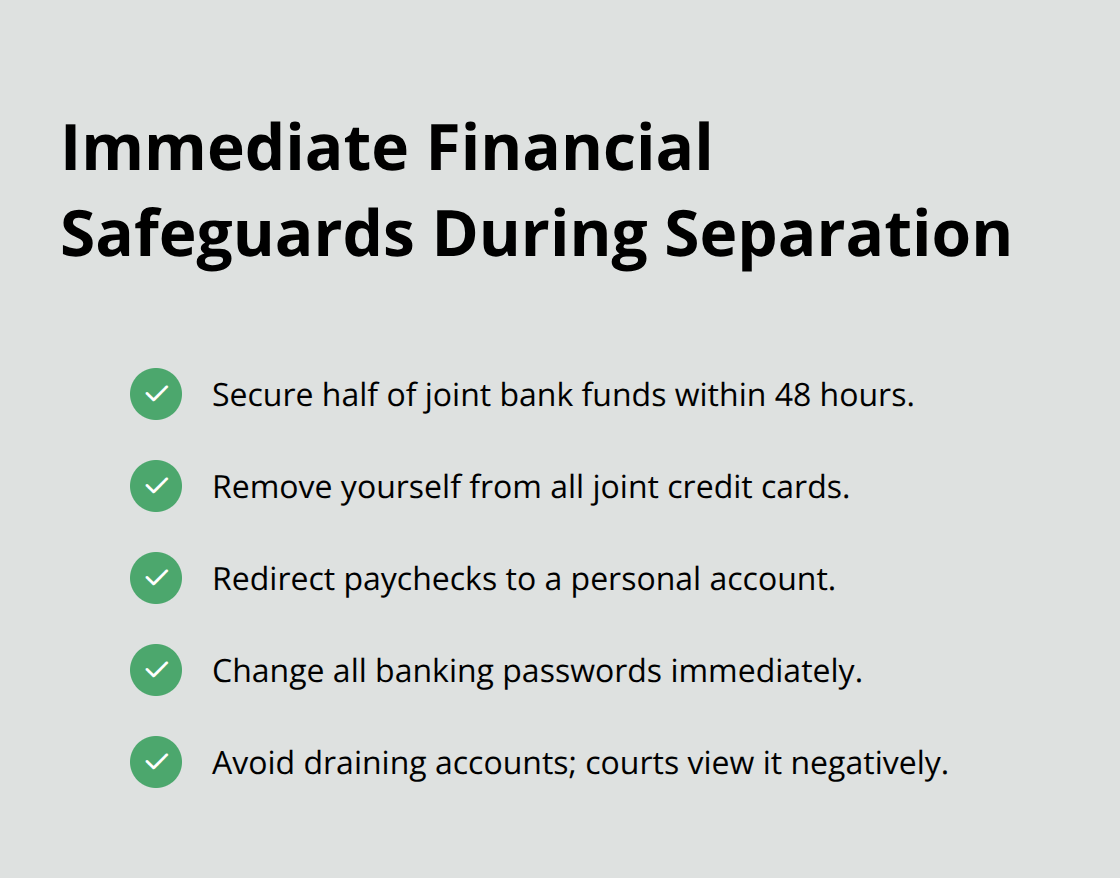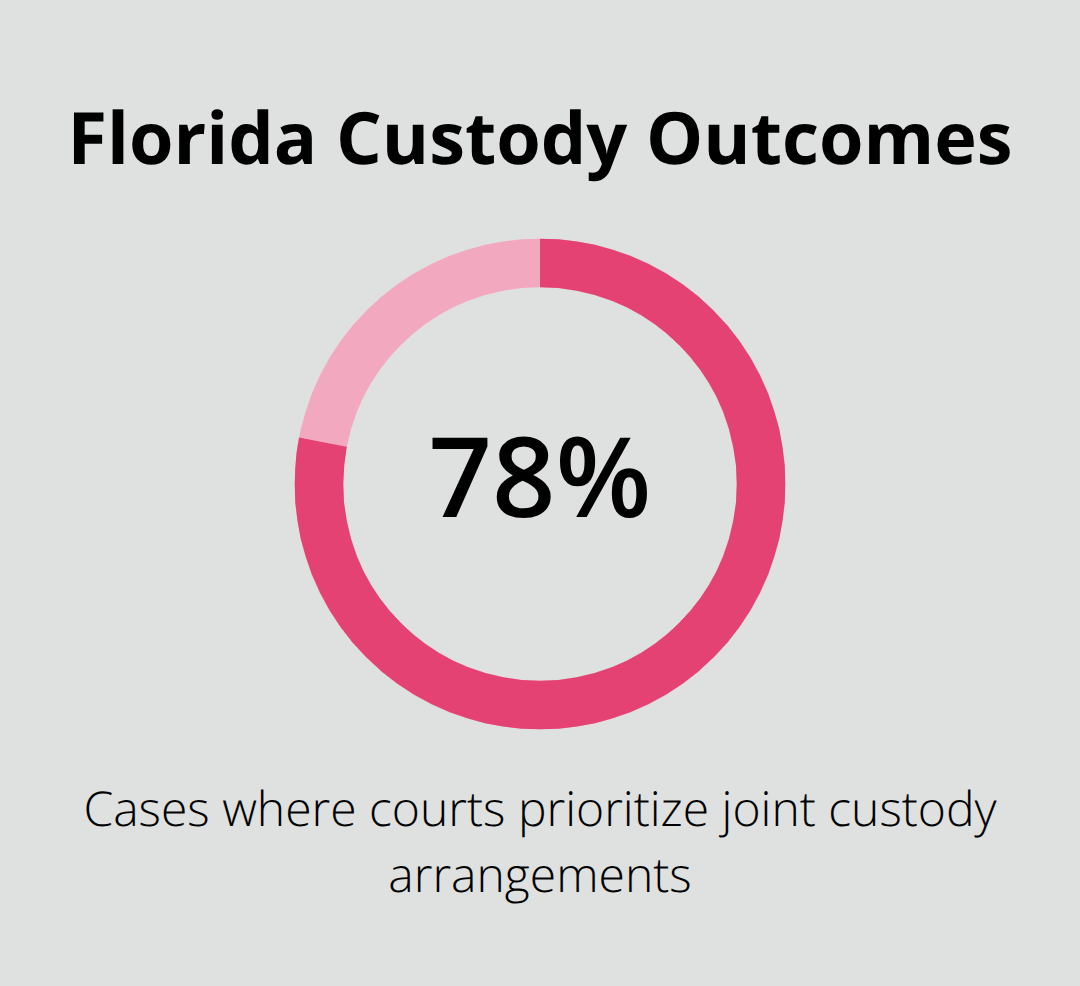Legal Guidance for Separation: What You Should Know
Our Blog
Legal Guidance for Separation: What You Should Know

Separation brings complex legal challenges that require careful navigation through Florida’s family law system. Understanding your rights and obligations becomes essential when facing this difficult transition.
We at Harnage Law PLLC see families in Melbourne struggling with property division, child custody arrangements, and financial uncertainties during separation proceedings.
Getting proper legal advice on separation protects your interests and helps you make informed decisions about your future.
What Makes Florida Separation Different From Divorce
Florida operates under unique legal frameworks that distinguish separation from formal divorce proceedings. Unlike many states that recognize legal separation as a formal status, Florida does not offer legal separation as an official court-recognized arrangement. Instead, couples who want to live apart must either pursue informal separation agreements or file for dissolution of marriage (which Florida formally calls divorce).
Understanding Your Options in Melbourne
When couples separate in Melbourne, they have two primary paths. The first involves creation of a written separation agreement that outlines property division, child custody, and support arrangements without court involvement. This informal approach allows couples to establish ground rules while they maintain their married status.
The second option requires you to file a petition for dissolution of marriage in Brevard County Circuit Court, which costs $409 in fees. Florida mandates only two grounds for divorce: one spouse declared legally incompetent for over three years, or the marriage being irretrievably broken. Courts in Brevard County process approximately 2,800 divorce cases annually, with most citing irretrievably broken marriages.
Mandatory Mediation Requirements
Mediation becomes mandatory for couples with children, and achieves settlement success rates of about 75% according to Florida court statistics. Courts require this step before you can proceed to trial, except in cases where domestic violence has occurred. The mediation process typically takes 2-4 hours and costs between $200-500 per session (split between both parties).

Required Documentation and Timeline
Florida requires extensive financial disclosures within 45 days of your petition, which include bank statements, tax returns, and property valuations. Both parties must complete Financial Affidavits and attend mandatory classes when children are involved. The documentation process typically takes 4 to 8 weeks for uncontested cases, while contested divorces can extend 6 to 12 months.
Electronic systems in Brevard County have reduced delays by 30% since implementation. Courts mandate that all parties read specific Administrative Orders and complete Attestation certificates before proceedings begin. These financial considerations and documentation requirements directly impact how you’ll need to approach property division and asset protection during your separation.
How Do You Protect Your Money During Separation
Financial protection during separation demands immediate action to prevent your spouse from draining accounts or hiding assets. Within the first 48 hours of separation, secure half of all joint bank account funds by transferring them to individual accounts. Florida courts expect each spouse to maintain existing marital assets, and judges view emptying joint accounts negatively during property division hearings.

Remove yourself from joint credit cards immediately to avoid responsibility for new debt your spouse might accumulate. Redirect your paychecks to personal accounts and change all banking passwords to protect your financial information.
Secure Your Assets Before Court Orders
Document every piece of marital property through photographs or video recordings before your spouse can remove items from the home. Florida follows equitable distribution laws, meaning courts divide marital assets fairly but not necessarily equally. Retirement accounts, real estate, and business interests require professional valuations that cost between $500 to $3,000 per asset. Gather three years of tax returns, bank statements, and investment account records to establish the marital estate’s value. Courts in Brevard County require complete financial disclosure within 45 days, and hiding assets can result in contempt charges and unfavorable property division.
Calculate Support Obligations
Florida uses specific formulas for alimony calculations based on marriage length and income differences between spouses. Marriages that last less than seven years rarely receive permanent alimony, while marriages over 17 years qualify for permanent support. Short-term marriages typically result in rehabilitative alimony that lasts 2-5 years to help the lower-earning spouse gain job skills. Document all monthly expenses including housing, utilities, insurance, and childcare costs to support your alimony request. Courts consider each spouse’s earning capacity, education level, and contributions to the marriage when they determine support amounts (which can range from 20% to 35% of the paying spouse’s gross income).
These financial decisions directly impact how you handle child-related matters, where temporary custody arrangements and support calculations become equally important considerations.
How Do You Handle Child Custody During Separation
Establish Temporary Custody Orders
Temporary custody arrangements require immediate court action to establish legal frameworks that protect your children’s welfare during separation proceedings. File a petition for temporary custody within 30 days of separation to prevent your spouse from relocating with the children or making unilateral decisions about their care. Brevard County courts process emergency custody motions within 48-72 hours when children face immediate risk, while standard temporary orders typically take 2-3 weeks to obtain. The filing fee of $409 includes temporary custody provisions, and courts can issue interim orders covering child custody, support, and visitation schedules while your case progresses.
Understand Florida’s Custody Preferences
Florida courts prioritize joint custody arrangements in 78% of cases according to state judicial statistics, believing children benefit from maintaining relationships with both parents during family transitions. Courts evaluate factors including parental involvement, financial stability, and the child’s emotional needs when they make custody decisions. Stability in the child’s living situation becomes paramount, as judges prefer to maintain existing routines to minimize disruption during the separation process.

Calculate Support and Create Parenting Plans
Child support calculations follow Florida’s statutory guidelines that consider both parents’ gross monthly incomes, overnight stays, and childcare expenses. Courts use specific worksheets where support amounts range from $200 to $2,000 monthly depending on combined parental income levels and custody arrangements. Parents earning $50,000 annually typically pay $400-600 monthly for one child, while those earning $100,000 pay $800-1,200. Support modifications require demonstrating substantial changes in circumstances such as job loss, income increases over 15%, or changes in custody time exceeding 20%.
Complete Required Classes and Mediation
Courts mandate parenting classes for all parties with children, costing $25-50 per person, and completion within 45 days of filing. Comprehensive parenting plans must address daily schedules, holiday rotations, transportation responsibilities, and decision-making authority for education and healthcare. Mediation resolves 75% of custody disputes, saving families $3,000-8,000 in litigation costs compared to contested trials that can stretch 6-12 months.
Final Thoughts
You must protect your rights during separation through swift action across multiple fronts. Secure your financial accounts within 48 hours, document all marital property, and file for temporary custody orders within 30 days to establish legal protections. Complete required financial disclosures within Florida’s 45-day deadline and attend mandatory mediation sessions that resolve 75% of disputes.
Legal advice on separation becomes essential when you face complex property division, contested custody arrangements, or disputes over support calculations. Courts in Brevard County process thousands of family law cases annually, and proper representation significantly impacts outcomes (professional guidance helps you navigate Florida’s unique requirements where formal legal separation doesn’t exist as an official status). Qualified attorneys understand the nuances of Florida’s family law system and can protect your interests effectively.
We at Harnage Law PLLC provide representation in family law cases including divorce and child custody matters throughout Melbourne and Brevard County. You need to understand your options, protect your interests, and make informed decisions about your family’s future. Take action early, gather necessary documentation, and seek qualified legal representation to guide you through Florida’s family law system.
